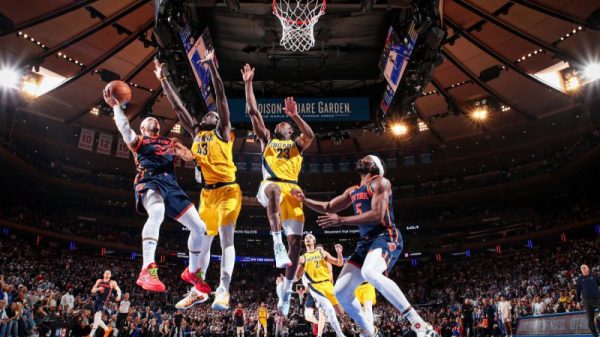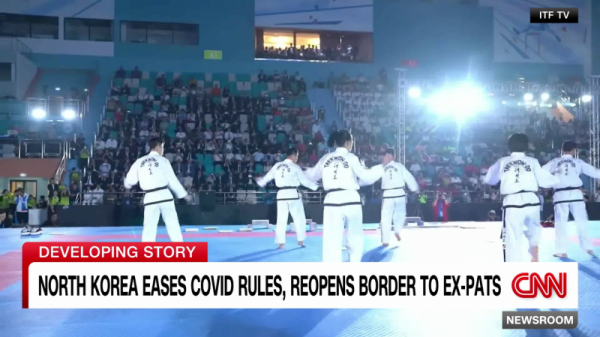Tuesday will go down as a momentous date in American political history, with the Colorado Supreme Court ruling that a former president engaged in insurrection and is therefore disqualified from the presidency.
The decision, the first of its kind involving Donald Trump, would keep him off the 2024 primary ballot in the state over his role in the Jan. 6, 2021, insurrection.
A state district court previously ruled that Trump had engaged in insurrection but that the relevant section of the 14th Amendment did not apply to presidents. The state Supreme Court upheld the former finding and reversed the latter, in a 4-3 decision.
It delayed its ruling until at least Jan. 4, just before the deadline for the Colorado secretary of state to certify the primary ballot, to allow the U.S. Supreme Court to review the issue if it chooses to. Trump’s campaign quickly signaled that it would appeal.
Below are some takeaways.
The decision is at once explosive and likely to have little direct impact on the 2024 election.
Colorado has trended blue in recent decades and is not considered a competitive state in presidential elections, having given President Biden a 13.5-point victory in 2020. That made it the 14th-bluest state — the kind of state that if Trump ever won it, he would most likely secure more than enough electoral votes to be elected.
Nor is Colorado’s primary particularly important. Its contest is slated for March 5, Super Tuesday, alongside a dozen other states. Trump is a huge favorite for the GOP nomination and very likely won’t need Colorado.
It also bears noting that the victory for those seeking to disqualify Trump could prove fleeting. The U.S. Supreme Court may reverse the ruling. But the Colorado ruling also states that Trump is to remain on the ballot after Jan. 4 if someone merely seeks review at the U.S. Supreme Court, until the Supreme Court issues an order. If a decision isn’t prompt enough to change the ballot, Trump could stay on it by default.
But that doesn’t mean the decision is unremarkable.
For one thing, it’s historic. For another, it’s conceivable that Colorado becoming the first state to disqualify Trump could serve to embolden other judges and states to go down a similar road, in a way that counts. What’s more, the ruling could allow Trump to rally supporters behind a sense of persecution that has already proven potent in the GOP primaries.
Even some Trump critics were quick to criticize the decision.
“I do not believe Donald Trump should be prevented from being president of the United States by any court,” said former New Jersey governor Chris Christie (R), one of Trump’s primary opponents, who has attacked him over Jan. 6. “I think he should be prevented from being president of the United States by the voters of this country. … And I don’t believe it’s good for our country if he’s precluded from the ballot by a court.”
A Monmouth University poll last year found that 7 in 10 Republicans said it was not even appropriate to label Jan. 6 an “insurrection,” which gives you a flavor of how this might play on the right.
Whether the decision could be replicated remains to be seen. All seven justices on the Colorado Supreme Court were appointed by Democratic governors. That means three Democratic appointees disagreed with the court’s decision.
Republicans were also much quicker to attack the decision than Democrats were to hail it, suggesting there is unease on the left with this method of defeating Trump.
Section 3 of the 14th Amendment bars from “any office, civil or military, under the United States,” anyone who takes an oath “as an officer of the United States … to support the Constitution of the United States [who] shall have engaged in insurrection or rebellion against the same.”
Denver District Judge Sarah B. Wallace previously cited the timeline of Trump’s actions and his history of promoting political violence in finding that Trump “acted with the specific intent to incite political violence and direct it at the Capitol with the purpose of disrupting the electoral certification.”
But she also ruled that Section 3 wasn’t meant to pertain to presidents.
The state Supreme Court stated that she erred on that latter count. It took issue with Wallace’s rationale that earlier drafts of the 14th Amendment explicitly mentioned the presidency and the idea that it was specifically excluded.
The court cited a drafter of the amendment, then-Rep. Samuel McKee (Ky.), who at one point described the aim as barring traitors “from all political power in the nation.”
“While nothing in Representative McKee’s speeches mentions why his express reference to the Presidency was removed,” the court ruled, “his public pronouncements leave no doubt that his subsequent draft proposal still sought to ensure that rebels had absolutely no access to political power.”
The decision sets up the U.S. Supreme Court to make yet another major ruling relating to Trump and Jan. 6 — potentially a third to crowd the docket in the coming weeks and months.
Already in the last week or so, special counsel Jack Smith asked the Supreme Court to fast-track a decision on Trump’s claims to presidential immunity from his election-subversion indictment. Then the Supreme Court signaled it would review the use of a popular charge used against hundreds of Jan. 6 defendants, including Trump: obstruction of an official proceeding. Some judges have rejected or expressed skepticism about that charge’s applicability.
The Supreme Court hasn’t signaled whether it will review the Colorado Supreme Court’s decision, but regardless, its handling of the matter will constitute a major decision. If the court somehow declines to review the case, it will effectively allow Trump to be excluded from the ballot. If it takes up the case, the decision about his eligibility would be up to a conservative-leaning court containing three members nominated by Trump himself.
Such a decision could also prove significant for many other efforts to disqualify Trump, which thus far haven’t been successful.
Perhaps anticipating the U.S. Supreme Court’s review, the Colorado Supreme Court’s decision cited a 2012 opinion by then-appeals court Judge Neil M. Gorsuch. In it, Gorsuch alluded to “a state’s legitimate interest in protecting the integrity and practical functioning of the political process,” which “permits it to exclude from the ballot candidates who are constitutionally prohibited from assuming office.”
The decision is the culmination of a long-running effort to disqualify not just Trump but other Republicans over Jan. 6.
Efforts to disqualify members of Congress including Rep. Marjorie Taylor Greene (R-Ga.) and now-former congressman Madison Cawthorn (R-N.C.) failed, in part, because it was harder to directly attach them to the events of Jan. 6.
But last year the effort notched what appeared to be the first disqualification under the 14th Amendment since the Civil War era: A New Mexico judge kicked Otero County Commissioner Couy Griffin out of office after Griffin was convicted of misdemeanor trespassing on Jan. 6.
Previous efforts to disqualify Trump from the 2024 ballot have failed in Minnesota and Michigan.







































